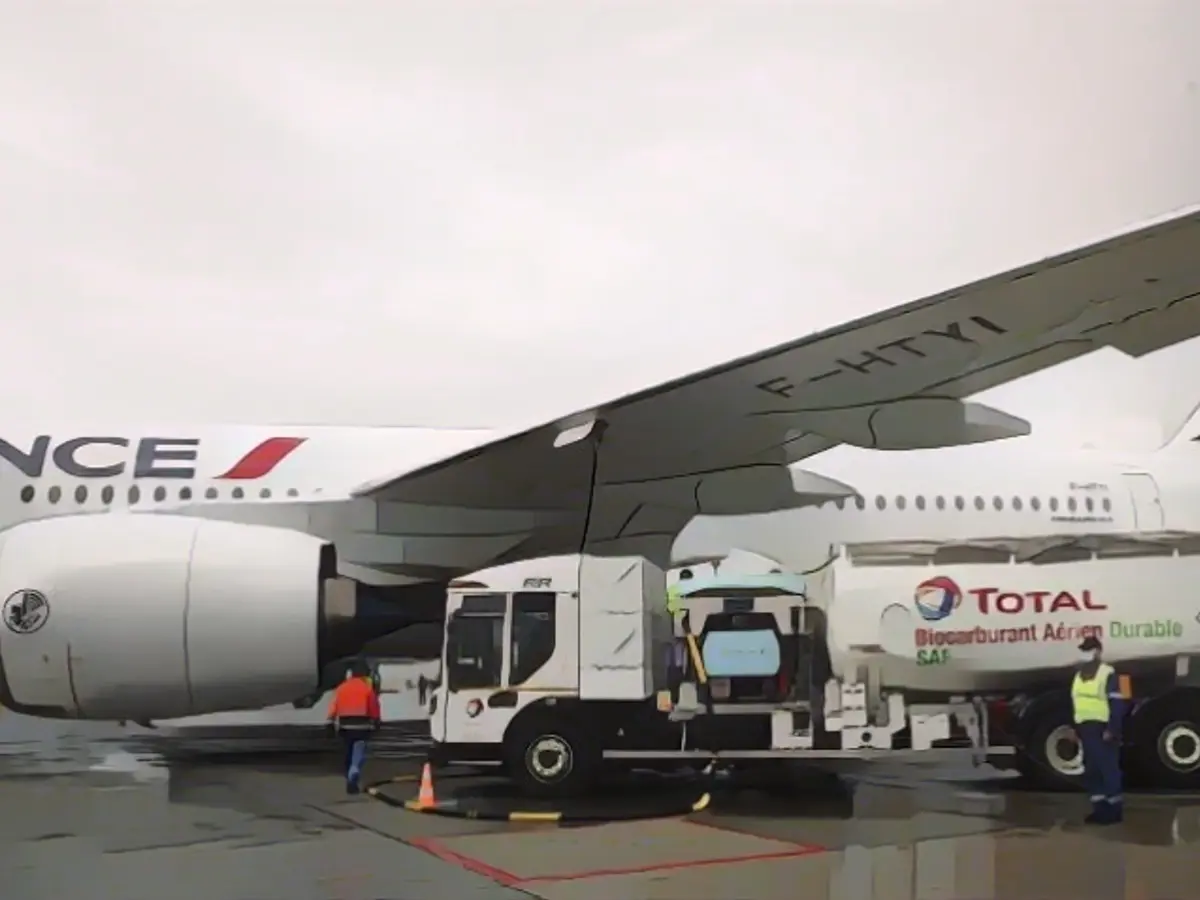Daring moves to curb aviation's environmental impact are gaining momentum, with sustainable fuels potentially reducing greenhouse gas emissions by up to 80% compared to traditional jet fuel. To combat climate change, exponential growth in Sustainable Aviation Fuel (SAF) production is necessary, as it currently accounts for just 0.1% of the commercial aviation industry's jet fuel consumption.
Most SAF originates from recycled food waste and agricultural waste, such as used cooking oil, making it a significant contributor to reducing carbon emissions. With electric and hydrogen-powered planes unlikely to make their debut in the near future, even for short-haul flights, many countries have identified sustainable fuels as a crucial stepping stone in their efforts to decarbonize aviation.
However, SAF's environmental credentials come with a price tag. The high costs associated with sustainable fuels and their limited availability pose challenges. To address these issues, the recent formation of the 'Clean Skies Tomorrow' coalition aims to drive the growth of SAF. The collaboration includes partners like Airbus, American Airlines, British Airways, Cathay Pacific, Japan Airlines, and Shell. By producing SAF at a lower cost, this alliance hopes to make sustainable fuels a viable alternative for the aviation industry.
In 2019, the world generated a meager 190,000 tons of SAF, less than 0.1% of the 300 million tons of jet fuel consumed by commercial airlines. If all announced SAF projects are completed, SAF sales may only reach 1.1% of the predicted global demand for aviation fuel by 2030, according to a report from the World Economic Forum and McKinsey. Shell Aviation has ambitious plans to produce 2 million tons of SAF annually by 2025, ten times the global SAF production of 2019.
But who will bear the cost of this transition to sustainable fuels? While less than 1% of passengers choose to offset their CO2 emissions by paying extra for their flights, freight carriers and companies looking to offset the emissions of business trips are expected to play a significant role in SAF investment.
To stimulate the market for sustainable fuels, the alliance has developed a certification system for SAF, allowing companies to purchase it to offset their travel emissions. The cost of SAF, while currently high, can be offset through sharing the burden across the entire value chain, ensuring the continued growth and sustainability of the aviation industry.
Ongoing experiments demonstrate that several airlines are already using renewable fuels, albeit in small quantities, mixed with conventional jet fuel. International Air Transport Association (IATA) reports that sustainable fuel was utilized on 360,000 commercial flights over the past decade, with the majority of applications in the past five years. Despite this growth, SAF still represents less than one-fifth of the conventional jet fuel costs in the global aviation industry, underlining the necessity for further investment in this sector.
Governments worldwide are taking action to promote the adoption of SAF, with some nations proposing regulations and mandating its use. For example, Norway and Sweden require a specific percentage of fuel to meet the SAF standard, while the UK and EU have suggested SAF permits. The current US administration is also considering incentives to encourage SAF production, with seventeen countries introducing sustainable fuel regulations by 2016 and the number rising to thirty-six today.
In conclusion, sustainable aviation fuels play a crucial role in decarbonizing the aviation industry. While challenges such as high production costs, feedstock availability, and logistical and environmental concerns necessitate further investment and technology advancements, cross-industry collaboration and government support represent the path to making aviation carbon-neutral.
Related Insights
- According to Neste, the Finnish biofuel producer, their Rotterdam facility will be expanded to increase its annual SAF production capacity to 2.75 billion liters by investing €1.9 billion.
- Biofuel feedstocks such as palm oil cultivation in Brazil have been linked to significant deforestation and biodiversity loss. However, alternative feedstocks like used cooking oil and agricultural waste pose fewer environmental concerns.
- Technological advancements in SAF production processes, such as Power-to-Liquid (PtL) and Methanol-to-Jet, can improve sustainability and affordability, addressing one of the primary challenges facing the aviation industry.
- Direct government intervention, including financial subsidies and regulatory mandates, is crucial in bridging the cost gap between conventional jet fuel and sustainable aviation fuels.
- The European Union has set ambitious targets for SAF adoption, requiring airlines to utilize at least 2% of sustainable fuels by 2025 and aiming for 70% by 2050. However, current production levels fall short, highlighting the need for increased support and investment.








